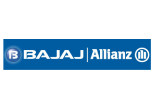Tax Benefits Under Money Back Plans in India
Money Back Plans are a popular choice among individuals seeking dual benefits from life insurance policies, i.e., life insurance coverage and periodic payouts at specified intervals (Survival Benefit).
While they guarantee financial safety and regular income, one attractive advantage offered by money back plans is the tax rebates.
In the blog, we will discuss tax benefits associated with money back plans so you can save on some taxes while filling your next ITR.
Table of Contents
Importance of Understanding Tax Benefits Associated with Money Back Plans
As already stated above, money back policies not only offer life cover to ensure financial safety but also, in addition, provide regular payment after certain intervals for the insurance payees' short-term needs, all while being insured by the policy.
Here are some key reasons why it is necessary to understand the tax benefits of money back policies:
- Reduced Taxable Income: The premiums you pay for your money back policy are eligible for tax deduction. Hence, you can save significantly on taxes due to the reduced taxable income.
- Tax-Free Maturity Benefits: The lump-sum amount policyholders receive as the maturity benefit is tax-free.
- Tax-Free Death Benefits: In case of an untimely demise, the sum assured received by the policyholder’s family is tax-free.
Give some time to understand the tax advantages, and you might just start making wiser investments!
Tax Benefits on Money Back Plans

Tax benefits on money back plans are available under the following Income Tax sections.
1. Section 80C
Section 80C of the Income Tax Act of 1961 provides tax relief on premiums paid for money back policies to the extent of ₹1.5 lakh.
Let’s say Ramesh pays an annual premium of ₹50,000 for his money back plan. This amount is eligible for deduction under Section 80C. If Ramesh is in the 20% tax bracket, this deduction saves him ₹10,000 in taxes (20% of ₹50,000).
2. Section 10(10D)
Under Section 10(10D), the survival benefits, as well as the maturity amount received at the completion of the policy term, are tax-free. However, there are some exceptions to this rule.
- The premium paid should not exceed 10% of the sum assured for policies issued on or after April 1, 2012. For instance, If the policy sum assured is ₹10 lakhs, the annual premium should not exceed ₹1 lakh to enjoy the tax exemption.
- New rules (Sixth and Seventh Proviso) introduced in the Finance Bill, 2023, add more conditions for policies issued on or after April 1, 2023:
-
- According to Sixth Proviso, if the premium paid in any policy year exceeds ₹5 lakhs, the amount received from that policy will not be tax-free.
- According to Seventh Proviso, if you have more than one policy and the total premium for all these policies in any year exceeds ₹5 lakhs, the tax exemption will only apply to those policies whose combined premium is less than ₹5 lakhs.
Sita has a money back plan with a sum assured of ₹10 lakh. She receives survival benefits of ₹2 lakh every 5 years and a maturity amount of ₹6 lakh at the end of the policy term. Since her annual premium is ₹80,000 (which is less than 10% of the sum assured), all these payouts are tax-free under Section 10(10D).
3. Tax-Free Death Benefit (Section 10(10D))
If the insured dies and the policy is active, the amount given as a death benefit will be entirely tax-free under Section 10(10D) of the Income Tax Act.
Tax Benefits on Riders/Add-Ons in Money Back Plans
Money Back Plans often come with optional health riders, such as critical illness cover or accidental death benefit. If you opt for any of these add-ons, the premiums paid towards these are eligible for tax deductions under Section 80D of the Income Tax Act. Deductions up to ₹25,000 are available for individuals, while for senior citizens, it is ₹50,000.
For instance, Rahul adds a critical illness rider to his Money Back Plan and pays an additional premium of ₹10,000 annually for this rider. He can claim this amount as a deduction under Section 80D.
Conditions for Availing Tax Benefits on Money Back Plans
Certain terms and conditions need to be met if you want to enjoy tax benefits offered with money back plans. Below, we have explained a few.
1. Payment Mode
Ensure that you are paying your premiums on time. In case of irregular or late payments, you might not be eligible for tax benefits.
2. Policy Status
For these benefits, it is advisable that your policy remains in force throughout the term. However, if you surrender or allow it to lapse too early, you may end up losing those deductions.
3. Tax Regime
Last but not least is the tax structure! The benefits may change when you file your ITR via the old tax regime or the new tax regime.
All the available tax deductions can be availed under the old tax regime. However, deductions u/s 80C and 80D are not available in the new tax regime, while exemptions under Section 10(10D) are still available.
Make sure to keep those conditions in check if you would like to enjoy more tax benefits and reduce that tax bill!
How to Claim Tax Benefits on Money Back Plans
Claiming tax benefits on your money back plan is pretty straightforward if you follow the below steps.
While filling out an income tax return (ITR), you have to inform the CA that you own a money back policy. To get the tax benefits, submit all the relevant documents, such as policy bonds, premium payment receipts, bank statements showing premium deductions, Form 16 (if you are a salaried employee), and others as per specific requirements.
It is recommended that all the documentation is done in advance to eliminate possible problems.
Conclusion
Tax benefits can significantly boost the profits that you can earn from money back plans. Be it a claim deduction under Section 80C or tax-free payout under 10(10D), these benefits make money back plans a great choice for wise investments.
To ensure that you are able to take full advantage of these benefits, it is recommended that you speak to a professional insurance advisor and tax consultant!
Frequently Asked Questions
Ques 1. What are the different sections of the Income Tax Act under which I can get tax benefits on my money back plan?
Ans. Here are the major sections of the Income Tax Act under which you can get tax benefits –
- Section 80C
- Section 10(10D)
Ques 2. What is the maximum tax deduction that I can get under Section 80C?
Ans. Under section 80C, you can get deductions on your money back plan premium payments up to a maximum of ₹1,50,000.
Ques 3. Are the maturity benefits offered by money back policies exempt from tax?
Ans. Yes, maturity benefits are exempt from tax under Section 10(10D) only with certain conditions.
Ques 4. Can I claim tax benefits if I surrender my policy?
Ans. No, you may lose out on both the policy benefit as well as the policy tax deduction if you choose to surrender the policy.
Ques 5. What if I don't make premium payments?
Ans. Missing premium payments may affect your policy benefits and your eligibility for tax deductions.




























































